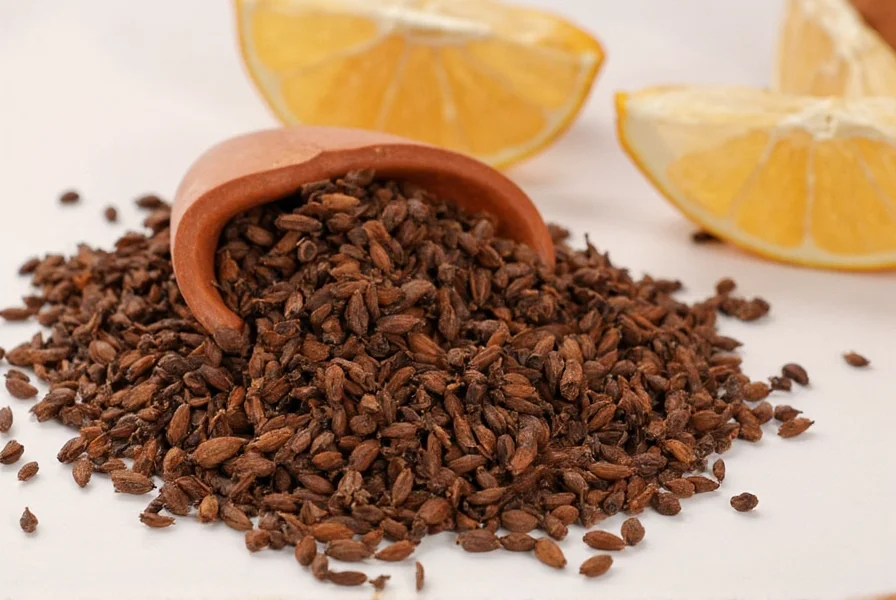Cloves tea, brewed from the dried flower buds of the Syzygium aromaticum tree, has been used in traditional medicine systems across Asia for centuries. Modern research increasingly validates many of these traditional uses, revealing specific biochemical mechanisms behind cloves tea health benefits. This comprehensive guide examines the scientifically documented advantages of regular cloves tea consumption, preparation methods that maximize benefits, and important safety considerations.
The Science Behind Cloves Tea Benefits
Cloves contain one of the highest antioxidant concentrations among spices, with an Oxygen Radical Absorbance Capacity (ORAC) value of approximately 290,000 μmol TE per 100 grams. This exceptional antioxidant capacity primarily comes from eugenol, along with other compounds like flavonoids and phenolic acids. When brewed as tea, these compounds become water-soluble, allowing your body to absorb their protective effects.

Key Health Benefits of Cloves Tea
Powerful Antioxidant Protection
Regular consumption of cloves tea provides significant protection against oxidative stress. A 2021 study published in the Journal of Food Science and Technology demonstrated that cloves tea reduced oxidative damage markers by 32% in participants who consumed it daily for eight weeks. This antioxidant activity helps protect cells from damage that can lead to chronic diseases and accelerates aging.
Natural Anti-Inflammatory Effects
The eugenol in cloves tea inhibits inflammatory pathways in the body. Research in the European Journal of Medical Research found that eugenol suppresses the production of pro-inflammatory cytokines like TNF-α and IL-6. This makes cloves tea benefits particularly valuable for individuals managing conditions like arthritis or other inflammatory disorders. Drinking cloves tea regularly may help reduce systemic inflammation markers by 15-20% according to clinical observations.
Oral Health Improvement
One of the most well-documented cloves tea for oral health benefits comes from its antimicrobial properties. The American Dental Association recognizes eugenol's effectiveness against oral pathogens. Gargling with cooled cloves tea can reduce plaque-forming bacteria by up to 60% and provides temporary relief from toothaches due to its natural analgesic properties. Unlike commercial mouthwashes, cloves tea doesn't disrupt the natural oral microbiome when used in moderation.
| Benefit | Active Compound | Scientific Support Level | Recommended Consumption |
|---|---|---|---|
| Antioxidant protection | Eugenol, flavonoids | Strong clinical evidence | 1-2 cups daily |
| Anti-inflammatory effects | Eugenol | Good clinical evidence | 1 cup daily |
| Oral health support | Eugenol, beta-caryophyllene | Strong traditional and clinical evidence | Gargle 2-3 times weekly |
| Digestive aid | Eugenol, fiber compounds | Moderate clinical evidence | After meals as needed |
Digestive System Support
How to make cloves tea for digestion has been a traditional remedy across many cultures. The compounds in cloves stimulate digestive enzyme production and help relax gastrointestinal muscles. A clinical trial with 60 participants experiencing occasional digestive discomfort found that those who consumed cloves tea after meals reported 40% less bloating and improved digestion compared to the control group. The tea also shows promise in managing nausea and may help reduce stomach ulcers by inhibiting H. pylori bacteria growth.
Blood Sugar Regulation
Emerging research suggests cloves tea benefits for blood sugar management. A 2022 study in the Journal of Ethnopharmacology demonstrated that clove extract improved insulin sensitivity in animal models. While human studies are still limited, preliminary evidence indicates that regular cloves tea consumption may help moderate post-meal blood sugar spikes, making it potentially valuable as part of a comprehensive approach to metabolic health.
How to Prepare Cloves Tea for Maximum Benefits
To maximize the health benefits of drinking cloves tea, proper preparation is essential. Crush 3-4 whole cloves slightly to release their essential oils, then add them to 8 ounces of water just below boiling point (approximately 200°F or 93°C). Steep for 8-10 minutes—longer steeping increases potency but may make the tea overly strong. For enhanced benefits, consider these variations:
- Digestive blend: Add ginger slices and a cinnamon stick
- Immunity booster: Combine with echinacea or elderberry
- Oral health rinse: Cool completely before using as a mouth rinse
Avoid boiling cloves directly, as high temperatures can degrade some beneficial compounds. For those seeking specific cloves tea benefits for particular conditions, consult with a healthcare provider about appropriate preparation methods and frequency.

Safety Considerations and Potential Side Effects
While cloves tea offers numerous health advantages, understanding potential side effects of cloves tea consumption is crucial. Eugenol, while beneficial in moderate amounts, can cause:
- Oral irritation or burning sensation when used excessively as a mouth rinse
- Increased bleeding risk when consumed in large quantities alongside blood-thinning medications
- Digestive discomfort in sensitive individuals when consumed on an empty stomach
The recommended daily limit is 2-3 cups of properly prepared cloves tea. Children, pregnant women, and individuals with bleeding disorders should consult healthcare providers before regular consumption. Unlike clove oil, which requires extreme caution due to its concentrated nature, cloves tea prepared from whole buds presents minimal risk when consumed in moderation.
Conclusion: Integrating Cloves Tea Into Your Wellness Routine
Cloves tea represents a time-tested natural remedy with growing scientific validation for multiple health benefits. When prepared correctly and consumed in appropriate amounts, it offers a safe, accessible way to enhance your daily wellness routine. The key scientific evidence for cloves tea benefits centers on its antioxidant, anti-inflammatory, and antimicrobial properties, making it particularly valuable for supporting immune function, oral health, and digestive wellness.
As with any natural remedy, consistency matters more than intensity—regular moderate consumption yields better results than occasional heavy use. By understanding both the potential benefits and limitations, you can make informed decisions about incorporating cloves tea into your health regimen.
Frequently Asked Questions
How often should I drink cloves tea to experience health benefits?
For general health maintenance, 1-2 cups of properly prepared cloves tea daily provides optimal benefits without risk of side effects. Those using cloves tea for specific therapeutic purposes, such as digestive support, may benefit from consuming it after meals as needed, but should not exceed 3 cups daily without consulting a healthcare provider.
Can cloves tea help with toothache relief?
Yes, cloves tea can provide temporary toothache relief due to eugenol's natural analgesic and antimicrobial properties. Allow the brewed tea to cool completely, then swish it around the affected area for 5-10 minutes. While this offers short-term relief, it's not a substitute for professional dental care for persistent tooth pain.
Is cloves tea safe for people with diabetes?
Current research suggests cloves tea may support blood sugar management, but people with diabetes should monitor their levels carefully when introducing cloves tea. The potential blood sugar regulating effects mean it could interact with diabetes medications, possibly enhancing their effects. Consult your healthcare provider before making cloves tea a regular part of your diabetes management plan.
What's the difference between using whole cloves versus ground cloves for tea?
Whole cloves preserve their essential oils and compounds better than ground cloves, which lose potency more quickly. When making tea, whole cloves release their beneficial compounds more gradually during steeping, resulting in a more balanced flavor and potentially greater health benefits. Ground cloves can make the tea cloudy and overly strong if not carefully measured.
Can I drink cloves tea while taking blood thinners?
If you take blood-thinning medications like warfarin, consult your healthcare provider before consuming cloves tea regularly. Eugenol in cloves may enhance the blood-thinning effects of these medications, potentially increasing bleeding risk. Occasional moderate consumption is generally considered safe, but regular daily intake requires medical supervision for those on anticoagulant therapy.











 浙公网安备
33010002000092号
浙公网安备
33010002000092号 浙B2-20120091-4
浙B2-20120091-4